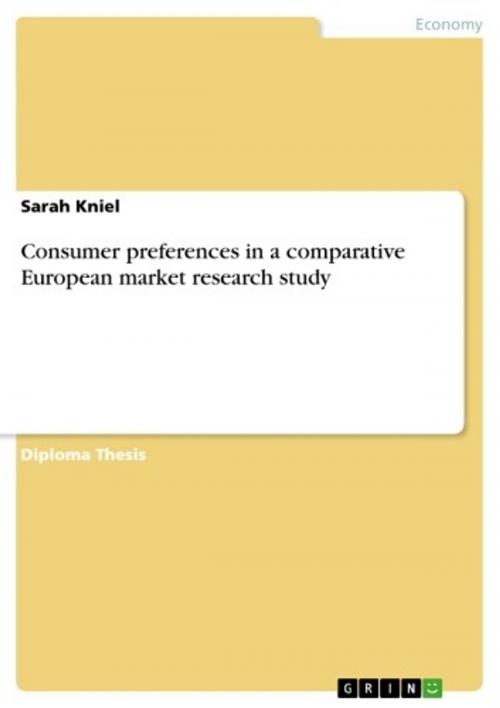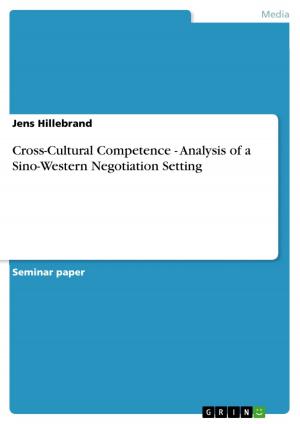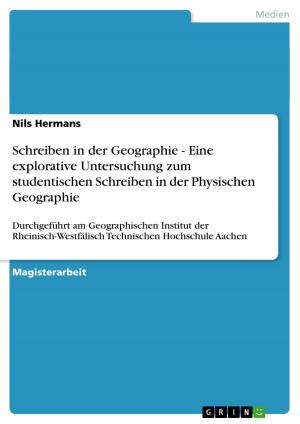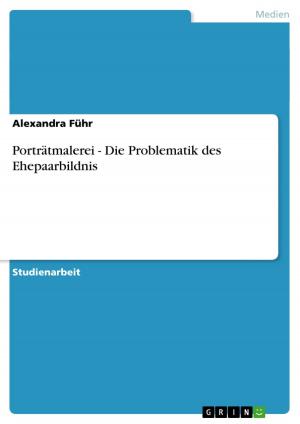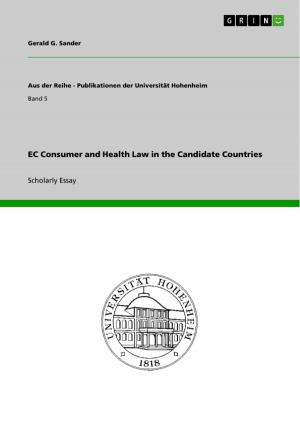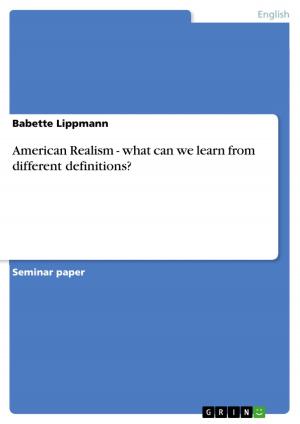Consumer preferences in a comparative European market research study
Business & Finance, Marketing & Sales| Author: | Sarah Kniel | ISBN: | 9783638197380 |
| Publisher: | GRIN Publishing | Publication: | June 7, 2003 |
| Imprint: | GRIN Publishing | Language: | English |
| Author: | Sarah Kniel |
| ISBN: | 9783638197380 |
| Publisher: | GRIN Publishing |
| Publication: | June 7, 2003 |
| Imprint: | GRIN Publishing |
| Language: | English |
Diploma Thesis from the year 2002 in the subject Business economics - Marketing, Corporate Communication, CRM, Market Research, Social Media, grade: 1,0 (A), University of Kassel, 102 entries in the bibliography, language: English, abstract: Experiencing new and different cultures has been part of my life. The time abroad - more than a third of my life - has led to many interesting personal and professional experiences. This has helped me deal with new and unknown situations and respect tolerance as a most important value. Out of this interest I seek to understand and learn more about different cultures. Eventually, one realises that differences in cultures might exist but are they really as significant as generally assumed? This question is of great importance for modern economy of these days. In view of the modern world as a global market, the question seems to be - can cultural aspects be ignored? To what extent can and do they influence our thoughts and habits? Bolloré's market study in cooperation with 6 European universities provided an opportunity to analyse to what extent consumer behaviour is dependant on cultural aspects. Our comparison of European consumer preferences might help to give some attempt to whether we can assume that geographical boundaries are the only factors dividing nations within the European Union. My research is guided by the very basic question: 'Even though European countries are linked geographically and politically, and seem to be moving towards a more and more homogeneous union, to what extent can they be considered as one entity?'
Diploma Thesis from the year 2002 in the subject Business economics - Marketing, Corporate Communication, CRM, Market Research, Social Media, grade: 1,0 (A), University of Kassel, 102 entries in the bibliography, language: English, abstract: Experiencing new and different cultures has been part of my life. The time abroad - more than a third of my life - has led to many interesting personal and professional experiences. This has helped me deal with new and unknown situations and respect tolerance as a most important value. Out of this interest I seek to understand and learn more about different cultures. Eventually, one realises that differences in cultures might exist but are they really as significant as generally assumed? This question is of great importance for modern economy of these days. In view of the modern world as a global market, the question seems to be - can cultural aspects be ignored? To what extent can and do they influence our thoughts and habits? Bolloré's market study in cooperation with 6 European universities provided an opportunity to analyse to what extent consumer behaviour is dependant on cultural aspects. Our comparison of European consumer preferences might help to give some attempt to whether we can assume that geographical boundaries are the only factors dividing nations within the European Union. My research is guided by the very basic question: 'Even though European countries are linked geographically and politically, and seem to be moving towards a more and more homogeneous union, to what extent can they be considered as one entity?'
